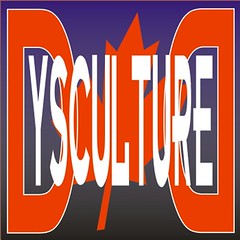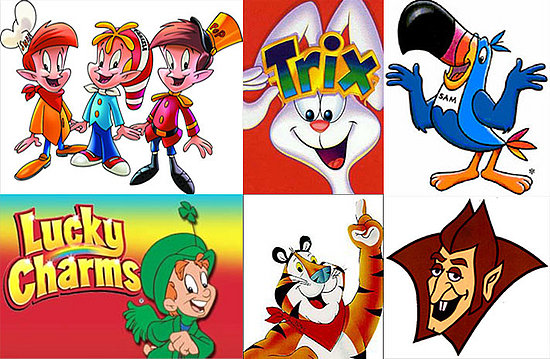Our "Year in Review" show even though I hate year in review shows. We hit the high and low points in tech, gadgets, movies, television and the web for 2008.

Our "Year in Review" show even though I hate year in review shows. We hit the high and low points in tech, gadgets, movies, television and the web for 2008.

Thanks Mike Vardy at effingthedog.com for helping me try to get out of my "podder's block" and suggesting the topic of the fall of Independent Film.

Top grossing "indie film" of 2007 - $41.6M
Click here for the podcast page or search Dyscultured in iTunes.
Show Notes for Episode Eleven
full dysclosure
Pownce Pwnd
MySpace verdict
Firefox past 20% in browser wars
Firefox Amazon Plugin to torrent site
Mozilla Music Player Songbird
Google Reader Changes
movies
Choice DVD Gifts
wheel of pop
Children’s Holiday Specials
websites
aviary.com - powerful online image editing
shoutfactory.com - pop culture revisited
music
The Barmitzvah Brothers - “Library Page” from the cd - Let’s Express Our Motives: An Album of Under-Appreciated Job Songs
Concerning my childhood reminiscences on the innocence of a breakfast cereal life and some discourse on scope, scale and setting in the Watchmen and film in general.

I'm certainly not the only waiting for the Watchmen movie to come out in March '09. There have been plans to make this film for almost two decades and all reports, even with the liberties Zack Snyder has apparently taken with the ending, are that the film is the best anyone could expect from a feature-length Hollywood production. Why is it that the "Hollywood production" is what scares me the most when ever I hear a story is being adapted? Could it be that the same studios responsible for every Eddie Murphy film of the last 15 years, Beverly Hills Chihuahua, and the gelding of Vince Vaughan and Will Ferrell have put me off of most major studio efforts?
The reason I'm so eagerly anticipating the Watchmen film is, of course, due to the comic book series and subsequent graphic novel by Alan Moore and David Gibbons. The thing that impressed me so much upon first reading the series was the scope and scale the story took. Moore and Gibbons didn't only create a world, but they inhabited it with hyperreal characters and landscapes and I daresay, more than any other comic at that time and since, enveloped readers in it. Such a method of grand scale doesn't always work, and rarely in comics, especially only given the 12 issue run. I remember reading Frank Herbert's Dune series and really struggling as a teen trying to get through at least half of the first book just to feel like I had a grasp on the setting. I'm not saying the effort was not worth it. And, to be sure, I admired the first five or six of the Dune novels... I didn't really keep up after that. Yet there was an example of grand scale gone wrong when it came to David Lynch's film effort. I enjoyed the film enough when it came out, but realized that even I (after reading four books at the time) was having trouble following some of the history and practices from scene to scene. The friend I went with was completely lost. He told me that after about 45 minutes he pretty much just gave up on the story and settled back to watch it as a psychedelic tryptich. Therein lay the problems and pitfalls of trying to contain scope and scale and setting in a Hollywood production. Don't get me wrong, Hollywood can present scope, scale and setting through a well-crafted screenplay incredibly effectively. Give me a sweeping crane shot here, an flourishing orchestral score there, a supporting cast of thousands in period costume and weve got the makings of grandiose epic. But the transition of book print to a film print always loses something in translation precisely becuase the film tries to remain faithful. I would suggest the very reason that Stephen King's The Shining and Stanley Kubrick's adapted film were both great is precisely because, just as King concentrated on writing the best novel he could without thinking of how it would end up on film, Kubrick concentrated on making the best film he could make without concerning himself with remaining completely true to text. I appeciate the desire of Hollywood to start with a product that has been at least successful in one venue or another. Such is the reason that every novel that makes a popular list gets optioned by some producer or studio these days. I'll further concede that the stories presented in a novel must look far more rich when placed side by side with a screenplay. Actors clamor to delve into a well-developed character that verges away from stereotypes and while novels can paint broad two-dimesional stroke when the want to, they do have much more canvas to experiment with. The successful novel will always be a popular catalyst for a film, and, more often, comics are providing that incentive as well because let's face it, some of them have years and decades to explore a character and, quite frankly, they need it. The development in any given character within one comic book issue is miniscule at best. Let's face it, superheroes are often two dimensional at best and the only depth we ascribe to them is buried in the decades long history they encompass. And so we come back to the Watchmen. Depth of multiple characters, plot and setting in 12 issues was near unheard of in a comic book era that birthed the Teenage Mutant Ninja Turtles. I understand why Alan Moore has become forever hesitant to watch any of his stories brought to film. In the same way we create imaginary worlds when reading novels, try to conceive of the scope and scale in Moore's mind upon creating the Watchmen world. How much did he conceive of that he couldn't even fit into the books? When we feel things are missing as readers, I can only imagine the process of seeing a film adaption is deathly uninspiring to the orginal writer. I hope for the success of the film. I hope it inspires millions to go and read the original. I hope that Zack Snyder gets lauded for the attempt even if not the execution. I know that if I can line up at midnight on 03/06/09, the answer to "who watches the Watchmen?" will be me and a horde of fanboys.
How my obsession with collecting prompts my advocacy for the cloud.

It's becoming clearly evident that the older I get, the more willing I am to accept the unusual in the art that I view, listen to, or otherwise consume. Actually, I'm hoping for unusual these days. It's with this view that I revel in the unexpected. From Samuel L. Jackson "biting it" in Deep Blue Sea to the school bus take out in Mean Girls, I almost want to get up and cheer when the truly unique happens. And sure, I'll admit that just going weird for its own sake can come across as contrived, and going persistently weird for its own sake gives you the name of David Lynch.
One of the things I've hated for years was songs that fade out. That artists can persistently allow producers to rob them of the ability to find creative endings to songs is deplorable. I get the fact that being "radio-friendly" demands a no-nonsense way for even the most inattentive DJs to figure out when to start turntable number two, but the fade is quite simply the most uninventive and banal way to finish a song. I'll concede that there may be rare times that a fade can be used as a thematic device, but certainly not on 90% of every song recorded since the 50s. In fact, the first recorded fade was used in "Neptune, part of the orchestral suite, The Planets, by Gustav Holst. Holst stipulate[d] that the women's choruses [were] "to be placed in an adjoining room, the door of which [was] to be left open until the last bar of the piece, when it [was] to be slowly and silently closed", and that the final bar (scored for choruses alone) [was] to be repeated until the sound [was] lost in the distance." Apparently the thought of the fade didn't cross Holst's mind as a way to provide a smooth segue into the Eye in the Sky traffic report during afternoon drive time.
But there's a strange corollary for every song that I wish could be wrapped up and finished, and for every photograph and painting that has neither beginning nor end, and every television show or series that ends unsatisfyingly derivative. I want the musician to complete the thought, even though the ending may be abrupt or odd. I want the director and screenwriter to complete a vision that suits theirs and not my sensibility. No one questions the painter for taking a slice of life and allowing the viewer to interpret the story before and after. So why does mainstream "art" have to be wrapped up in a neat little packages to be acceptable. Must we demand from our art and entertainment a sense of completion that does away with the snippet of real life that film or television represents?
Beckett explored the the existential reaches of redundancy with Waiting for Godot and is celebrated 50 years later. Joyce completed an esoteric wraparound in Finnegan's Wake with a final sentence that "riverran" flawlessly into the opening sentence. Bob Ezrin contructed Pink Floyd's The Wall with a soft voice that began the disc with "...we came in?" and finished it with "Isn't this where...." The Coen's adaptation of No Country for Old Men had a brilliant understated conclusion that surely pissed some people off, but in its open-ending was more satisfying and thematically-pleasing than any contrivance that might have made for a happy audience.
After all, such neat little wrap-ups are the essence of Shakespearean comedy and children's stories. The evil get screwed, the good get rewarded, the fools get their ass kicked and run away, and the true lovers get married. Beyond this genre, I fail to see why we should have any right to expect any specific ending for a story or a song. The concept of poetic justice has trained our collective media minds to expect the bad to get punished, the good to triumph and all loose ends to be wrapped up - but this is not reflective of life. If art is supposed to be a reflection of life, let's allow for art to include the strange, the bizarre, the unexpected, the flawed and the needlessly tragic. If we can't find beauty in representations of ALL aspects of life, we are shortchanging ourselves some of the greatest stories that can be told... or, more realistically, that can be bankrolled in order to be told.

The disappearance of original screenplays in Hollywood. Free up screenwriters and support independent film.